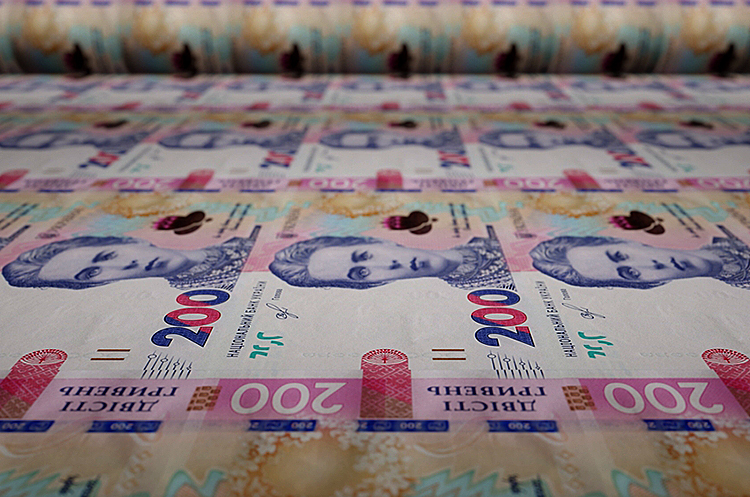Print on: What awaits the economy of Ukraine because of the issue of hryvnia
What are the consequences of monetising the budget deficit

For 4.5 months the National Bank has already been printing hryvnia for the sake of patching up the state budget. About 255 billion UAH have been additionally issued into circulation during this period. Oleksandr Bondarenko, managing partner at the Bureau of Investment Programmes, told Mind what awaits the economy of Ukraine due to this move by the regulator.
Earlier Mind examined this situation as well – in the piece “Shadow emission: How the National Bank saves the state budget thanks to the printing-press.”
One needs to know that this is a forced measure. Since about 240–250 billion UAH monthly are expenditures of the state budget on military and social payments, such as salaries for the army and public sector employees, pensions, utilities costs, fuel and arms purchase etc.
What are the sources for replenishing the budget during the war?
International borrowings and macrofinancial support make 40-50 billion UAH (loans + grants) on average per month. This is too little to satisfy the budget demands. So there is just nowhere to get the deficient amount, except to start printing. Since there is no foreign demand for the Domestic Government Bonds in the market and foreign investors only sell Sovereign Eurobonds (they are not going to buy, unfortunately)
That is, for all the last four months there has been latent issuing of money, and the mechanism is as follows: the Ministry of Finance announces a new issue of Domestic Government Bonds, state-run banks are forced to buy this issue, to whom the NBU gives money for the purchase, and extra hryvnia is put into the market for this purpose.
Thus, it turned out that money supply has increased by 255 billion UAH during the last four and a half months. While the additional products, goods, and services have not been produced for this money. And this is the worst for the economy. Since the process depreciates our currency (devaluation), prices rise (the amount of goods is the same, but there is more money, so prices will grow).
What could be done now?
I remind you that the main task of the National Bank of Ukraine, according to the Constitution, is to secure the stability of the national currency.
And its leadership, reasonably enough, does not want to switch the printing press on and insists on reducing government expenditures so that the state budget deficit is reduced.
By the way, according to the Copenhagen criteria (the criteria for joining the Eastern and Central Europe countries to the EU adopted in June 1993 on the meeting of the European Council in Copenhagen and approved in December 1995 on the Council’s meeting in Madrid), government expenditures cannot be financed through direct money emission by the National Bank.
And this is one of the conditions for getting so much desired membership in the EU for Ukraine. Fulfilment of the criteria means independence of the National Bank from other branches of power, and this is reasonable. Thus, we need to do everything possible for us to fit this criteria among other conditions for receiving full membership in the European Union.
So now it is critical to find additional sources for covering the deficit of the state budget. This should be done by the government in the person of the Ministry of Finance by conducting efficient talks with the EBRD, World Bank, European Investment Bank, IFC, and other organisations.
As well as communicate directly with the governments of Germany, France, the USA, and other international partners.Their financial assistance would help decrease the role of the NBU in patching the state budget.
One of the sources for filling up the budget with export revenues may be the formation of energy clusters on the EU border for exporting energy carriers to the EU at high prices: surpluses of electricity (prices are 2-3 times higher than in Ukraine), gas (the current price is $2600-2800/1000 cubic metres!), building a green hydrogen cluster in Lviv and Trans-Carpathian oblasts etc.
Thus, it would be possible to reduce pressure on hryvnia and stop devaluation of Ukrainian’s savings that are mainly in UAH.
The OpenMind authors, as a rule, are invited experts and contributors who prepare the material on request of our editors. Yet, their point of view may not coincide with that of the Mind editorial team.
However, the team is responsible for the accuracy and relevance of the opinion expressed, specifically, for fact-checking the statements and initial verification of the author.
Mind also thoroughly selects the topics and columns that can be published in the OpenMind section and processes them in line with the editorial standards.



